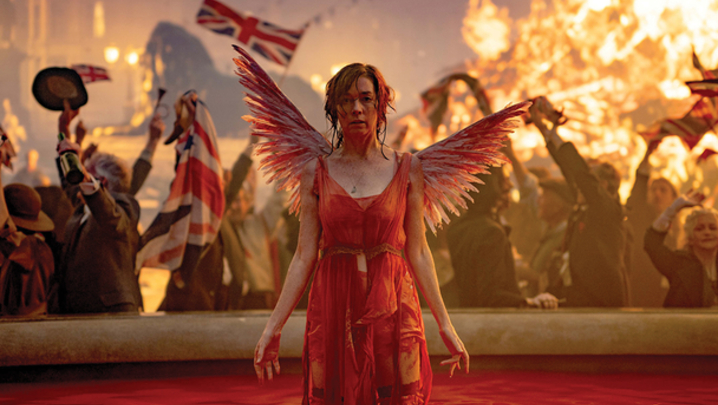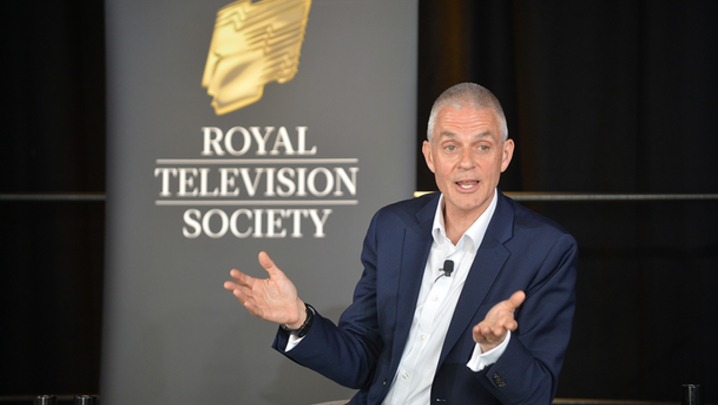Roz Laws learns how to pen TV drama from Wilderness creator Marnie Dickens and Doctor Who maker Bad Wolf
You don’t have to get a tattoo honouring your favourite production company if you want to get into TV… but it might help.
An audience member at RTS Cymru Wales’s event “How to write a TV drama” revealed that he wrote his master’s dissertation on the Bad Wolf theme in Doctor Who. It was his “absolute dream” to work for the production company, also called Bad Wolf, that makes the show, he declared. And to prove it, he said he had a tattoo on his left arm showing the Tardis graffitied with “Bad Wolf”.
“Flattery goes a long way,” replied a laughing Bad Wolf CEO, Jane Tranter, and doing your homework by watching television and reading the trade press was also helpful in showing dedication to your future career, she said.
The event was partly to promote Bad Wolf’s Blaidd Writers Programme, a six-month paid scheme for three Welsh writers to be mentored by celebrated screenwriters Marnie Dickens, Jack Thorne and Russell T Davies. Dickens, who created Wilderness, Gold Digger and Thirteen, was on the panel.
She got her foot in the TV door by working as a runner on the Kudos shows Spooks and Law & Order: UK, before setting out to write. “I read a lot of screenplay books and found them quite depressing, as they felt really schematic,” she said. “I had to find my own voice. To get ideas in the real world, I scoured the internet, looked at newspapers and listened to people’s conversations in cafes.
“Someone told me to write a 45-minute crime drama because that’s what ITV liked, but my attempt wasn’t very good. You can get caught up in thinking what the commissioners want when ‘What do I want to write about?’ is more important. Find what you’re interested in. For me, it was a 1920s girl gang.”
Emma Obank, Bad Wolf’s Creative and Commercial Affairs Executive, was once a screenwriters’ agent and stressed the importance of that role. “Most production companies won’t accept unsolicited scripts – they come through agents. It can take time to get an agent, so you have to be tenacious. If you don’t hear back, chase.
“Sell yourself to them. Say why you’ve picked them and plug anything you’ve done. Send a sample script of your best work and have more ideas to talk about if you get a meeting.”
Dickens emphasised the importance of keeping your day job and writing in your spare time, even when you have screen credits, as “it can take a while to get paid”. And it can be a “huge advantage” to learn on a soap or continuing drama, as she did on Hollyoaks.
“There’s a lot of snobbery surrounding them but some of the greatest acting, directing and writing talent has come through soaps: Suranne Jones, Russell T Davies, Sally Wainwright. It’s an incredible training ground, you work quickly and really collaboratively.”
Another way into the business is to “write about your lived experience”, said Tranter. That’s why she recruited the newcomers Mickey Down and Konrad Kay to create the BBC/HBO drama Industry, since they had worked at US banks in London. “We gave them the chance as they had the authentic voice of the world that we were bringing to the screen.”
She added: “Don’t overthink the idea. I’d much rather read work that’s messy round the edges but has an honest voice. You can be helped with structure. And no one cares about qualifications – you can’t weigh and measure talent.”
‘How to write a TV drama’ was held on 9 September at the University of South Wales in Cardiff and produced by Liam Jones from IJPR.





